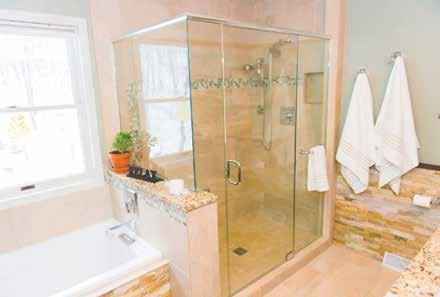
1 minute read
Five Electrical Safety Facts Every Home Owner Should Know
power due to weather issues or even on hot summer days of high demand. If you experience an outage, it is important to turn off all of the appliances in your house to prevent a circuit overload or even another outage when the power is restored. Electric companies recommend leaving one lamp on so that you'll know when the power is back.
3. House wiring eventually needs to be replaced.
Depending on the amount of use, insulation on house wires can become frayed or broken, creating a fire hazard. If you have any doubts about your wiring, have a qualified electrician perform a complete inspection. Houses built between 1965 and 1973, in particular, are at risk because many were built with aluminum wiring, which the U.S. Consumer Product Safety Commission says is 55 times more likely to reach “fire hazard conditions” than regular copper wire.
4. A circuit breaker is not designed to protect against a ground fault.
Circuit breakers are designed to protect against high levels of electrical current caused by a short circuit. Ground fault circuit interrupters (GFCIs) protect against ground faults, when current leaking from an appliance goes to ground through a person touching the appliance. Even a small amount of current passing through a person this way can be lethal; a GFCI will trip if there’s a ground fault, whereas a circuit breaker won’t.
5. You can damage a power tool by using the wrong size extension cord.
If your electric lawn mower, hedge trimmer, or leaf blower doesn’t get enough power, either because the extension cord is too thin or too long, the motor can be damaged and eventually destroyed. Also, overloading an extension cord can cause a fire or shock hazard. Be sure to use a cord rated to provide the proper amperage the tool requires, which is listed on the tool. Just a little electrical knowledge can go a long way. Remember, when dealing with electrical issues in your home, safety should be your number one priority. D
Chelle Eliason is the executive officer for the Arrowhead Builders’ Association. For more information, contact Arrowhead Builders Association at (218)722-5707 or visit their website at abamn.org Some material in this article was provided by the Leviton Institute.










